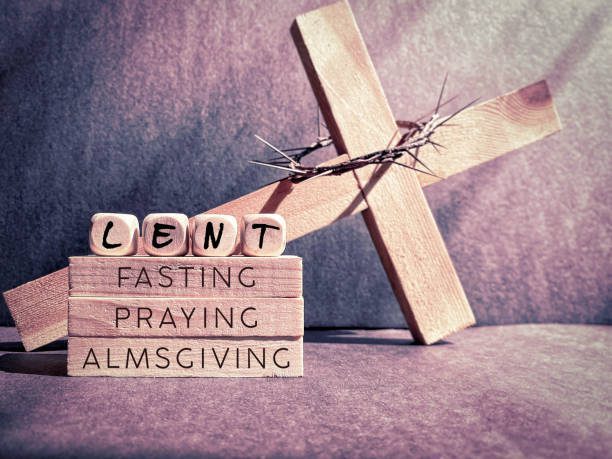
Day 1 – Jesus Finished It
“After he said this, he was taken up before their very eyes, and a cloud hid him from their sight.” — Acts 1:9 (NIV)
When Jesus ascended into heaven, it wasn’t just a dramatic exit , it was a powerful moment of completion. Everything He came to do from healing the sick to dying on the cross and rising again was now finished. The Ascension confirmed that He had completed His mission and was returning to take His place at the right hand of God.
But here’s what’s exciting: Jesus didn’t leave us to figure things out alone. His going up meant something new was coming, the Holy Spirit. So as we begin this Ascension Week, be encouraged: the One who overcame death didn’t just rise , He rules. He finished the work, and now He’s calling you into it.
What’s one thing you can surrender to Jesus today, knowing He’s already won?
Day 2 – He Went Up to Lift Us Up
“God raised him from the dead and seated him at his right hand in the heavenly realms.” — Ephesians 1:20 (NIV)
Jesus’ Ascension wasn’t just about leaving earth, it was about being lifted to a place of honor and authority. He is now seated at the right hand of the Father, ruling over everything. But here’s the wild part — Scripture says we’re raised with Him (Ephesians 2:6)! That means you’re not living a low-level life anymore.
Your identity isn’t based on your followers, your grades, or your mistakes. It’s based on who Jesus is and what He’s done. The Ascension tells us that Jesus is not only alive, He’s in charge. And that gives us boldness to walk in confidence, knowing our Savior is reigning, and our place with Him is secure.
Today, walk with your head held high — not in pride, but in purpose. Jesus went up so you could rise above.
Day 3 – The Mission is Ours Now
“You will receive power when the Holy Spirit comes on you; and you will be my witnesses.” — Acts 1:8 (NIV)
Before Jesus ascended, He left His final instructions — not a goodbye, but a game plan. His mission didn’t end when He left. It passed to us. We’re not just called to believe in Jesus; we’re called to represent Him.
But here’s the best part, we’re not doing it alone. Jesus promised power through the Holy Spirit. That means you’ve got divine help to speak life, love boldly, and live differently. Your school, your family, your online community — they’re all places where your life can point to Jesus.
Ask yourself today: Who in my world needs hope? And how can I be a witness?
Day 4 – Don’t Just Look Up
“Why do you stand here looking into the sky?” — Acts 1:11 (NIV)
Imagine standing there, watching Jesus rise into the sky. You’d probably be frozen too, eyes wide, heart racing. But then, two angels show up and say, “Why are you just standing here?”
Sometimes, we get so caught up in the spiritual moment — the worship, the high of youth camp, the powerful sermon, that we forget to live it out. The disciples had a mission. So do you. The Ascension isn’t just a wow moment; it’s a wake-up moment.
He’s coming back, but until then, we’ve got work to do. Don’t just look up, step out.
This week, choose action. Love someone. Forgive. Encourage. Start living like your faith matters — because it does.
Day 5 – He’s Praying for You
“Christ Jesus… is at the right hand of God and is also interceding for us.” — Romans 8:34 (NIV)
Jesus didn’t ascend to forget about you. He ascended to represent you. Right now, Jesus is sitting next to the Father — and guess what He’s doing? Praying for you.
He knows your struggles. He hears your silent prayers. He sees what you’re not saying out loud. And He’s talking to the Father on your behalf. You’re not alone in your battles — heaven is backing you up.
When life feels heavy, remember this: Jesus is interceding. You’re seen, known, and supported from above.
Day 6 – We’re Waiting for Power
“Stay in the city until you have been clothed with power from on high.” — Luke 24:49 (NIV)
The disciples wanted to go, but Jesus told them to wait. Why? Because what was coming next needed more than good intentions — it needed power.
Sometimes we want to rush ahead with our own plans. But Jesus teaches us that there’s strength in waiting. In that waiting, He prepares us, shapes us, and fills us. And then, when the time is right, He launches us with power we never knew we had.
If you’re in a season of pause right now, don’t panic. God is preparing to pour something out. Get ready.
Day 7 – He’s Coming Back
“This same Jesus… will come back in the same way you have seen him go into heaven.” — Acts 1:11 (NIV)
The Ascension reminds us that Jesus went up, but the story isn’t over. One day, He’s coming back — not as a suffering servant, but as a victorious King. That truth should shift the way we live today.
Knowing He’s coming again means we live with hope, not fear. We treat others with love, not hate. We don’t waste our time, we make it count. He’s coming back, and we want to be found ready.
Let this week stir your heart with hope. Jesus is not done with the world. And He’s not done with you.

The story of Jesus is the ultimate glow-up, from a newborn in a manger to the Savior of the world. His journey isn’t just inspiring; it’s transformative for everyone who believes. Let’s unpack how Jesus’ humble beginnings and divine mission changed history forever, all rooted in Scripture.
1. A Humble Start
“And she gave birth to her firstborn, a son. She wrapped him in cloths and placed him in a manger, because there was no guest room available for them” (Luke 2:7).
Jesus’ story begins in the most unassuming way imaginable. Born in a small town and placed in a manger because there was no room for His family in the inn, His birth reflected humility and simplicity. The King of Kings arrived without the fanfare one might expect for royalty. Yet, this humble start sets the stage for a life that would redefine greatness, teaching us that our worth isn’t tied to our circumstances but to God’s purpose for our lives.
2. Announced to the Underdogs
“But the angel said to them, ‘Do not be afraid. I bring you good news that will cause great joy for all the people’” (Luke 2:10).
Imagine being a shepherd on a quiet night, and suddenly, the sky lights up with angels announcing the birth of the Savior. The first people to hear about Jesus’ birth weren’t rulers or religious leaders but shepherds, ordinary, overlooked individuals. This choice reflects God’s heart for the marginalized and forgotten. By starting with the underdogs, God showed that His kingdom is for everyone, regardless of status or position.
3. Prophesied to Change the World
“For to us a child is born, to us a son is given, and the government will be on his shoulders. And he will be called Wonderful Counselor, Mighty God, Everlasting Father, Prince of Peace” (Isaiah 9:6).
Centuries before Jesus’ birth, the prophet Isaiah foretold His arrival. This verse captures His divine mission: to bring peace, guidance, and hope to a broken world. Jesus wasn’t just another leader; He was the fulfillment of a promise, the embodiment of God’s love, and the answer to humanity’s deepest needs. His glow-up was written in the stars long before He took His first breath.
4. Growing in Wisdom and Favor
“And Jesus grew in wisdom and stature, and in favor with God and man” (Luke 2:52).
Jesus’ childhood wasn’t skipped over in His story. He grew up like us, experiencing the challenges and joys of life. From His time in the temple as a young boy, astounding scholars with His understanding, to His later years preparing for His ministry, Jesus’ growth shows that even the Savior embraced the process of learning and maturing. This reminds us that growth, both spiritual and personal, is a vital part of God’s plan for our lives.
5. The Moment of Revelation
“Then a voice came from heaven, ‘You are my Son, whom I love; with you I am well pleased’” (Mark 1:11).
At His baptism, Jesus’ identity was publicly affirmed by God Himself. The heavens opened, and God declared His love for His Son, marking the beginning of Jesus’ public ministry. This moment wasn’t just about Jesus, it was a revelation for the world, a confirmation that the Messiah had come to fulfill His divine mission. It was a turning point, transitioning Him from preparation to action.
6. Sacrificial Love for All
“But God demonstrates his own love for us in this: While we were still sinners, Christ died for us” (Romans 5:8).
Jesus’ glow-up wasn’t about personal gain or recognition. It was about love, sacrificial, selfless, and unconditional. His journey led to the cross, where He paid the ultimate price for our sins. This act of love redefined what it means to give, showing that true greatness lies in serving and sacrificing for others. Jesus’ death and resurrection opened the door for everyone to experience God’s grace.
7. Risen and Reigning
“He is not here; he has risen, just as he said. Come and see the place where he lay” (Matthew 28:6).
The ultimate glow-up: Jesus conquered death. His resurrection wasn’t just a miracle; it was the fulfillment of His promise and the foundation of our faith. By rising from the grave, Jesus proved that He has power over sin and death, offering eternal life to all who believe. His reign as the risen Savior continues to transform lives today.
The Bottom Line
Jesus’ journey from the manger to the cross and beyond is a story of transformation, humility, and redemption. His life redefined greatness and brought hope to the world. As we reflect on His glow-up, let’s remember that His story isn’t just history, it’s an invitation to experience a glow-up of our own through faith in Him.

Giving is a powerful act that reflects the heart of God and His desire for us to live generously. Throughout the Bible, we find numerous teachings that emphasize the importance and impact of giving. Whether it’s through offering our time, resources, or love, the act of giving not only blesses others but also enriches our own lives. Here are seven Bible verses that highlight the power of giving and encourage us to embrace a life of generosity.
1. Acts 20:35 “In everything I did, I showed you that by this kind of hard work we must help the weak, remembering the words the Lord Jesus himself said: ‘It is more blessed to give than to receive.’”
When we give to others, especially those in need, we are not only helping them but also experiencing the joy and fulfillment that comes from generosity. It reminds us that true happiness is found in selflessness.
2. 2 Corinthians 9:6-7 “Remember this: Whoever sows sparingly will also reap sparingly, and whoever sows generously will also reap generously. Each of you should give what you have decided in your heart to give, not reluctantly or under compulsion, for God loves a cheerful giver.”
The emphasis on giving cheerfully reminds us that our attitude matters. God values a heart that gives freely and joyfully, knowing that our contributions can lead to abundant blessings.
3. Proverbs 11:25 “A generous person will prosper; whoever refreshes others will be refreshed.”
Generosity is not just about meeting the needs of others; it also brings personal renewal and prosperity. When we give, we often receive in return, not necessarily in material wealth, but in spiritual and emotional well-being. The act of giving refreshes both the giver and the recipient.
4. Luke 6:38 “Give, and it will be given to you. A good measure, pressed down, shaken together and running over, will be poured into your lap. For with the measure you use, it will be measured to you.”
Jesus emphasizes the abundance that comes from giving. The imagery of a generous measure being returned to us illustrates that our giving will not go unnoticed or unrewarded. When we give with an open heart, we can expect God’s blessings to overflow in our lives.
5. Matthew 6:3-4 “But when you give to the needy, do not let your left hand know what your right hand is doing, so that your giving may be in secret. Then your Father, who sees what is done in secret, will reward you.”
We should give quietly and humbly, without seeking recognition or praise. The focus is on the sincerity and purity of our giving. God sees our acts of kindness, even when they are done in secret, and He will reward us accordingly. It reminds us that true giving is done for the benefit of others, not for personal glory.
6. Hebrews 13:16 “And do not forget to do good and to share with others, for with such sacrifices God is pleased.”
Sharing what we have with others is a sacrifice that pleases God. This verse highlights the importance of being mindful of others’ needs and taking action to meet them. It serves as a reminder that our acts of generosity are not just good deeds; they are expressions of our faith and love for God.
7. James 1:17 “Every good and perfect gift is from above, coming down from the Father of the heavenly lights, who does not change like shifting shadows.”
All we have comes from God. Recognizing that every gift we receive is from Him encourages us to be generous in sharing those gifts with others. When we give, we are participating in God’s work, distributing His blessings to those around us.
Conclusion
The Bible teaches that giving is a powerful way to express our faith, love, and gratitude. These verses reveal that generosity not only impacts those we help but also enriches our own lives, bringing us closer to God and His purposes. Whether through our resources, time, or compassion, giving allows us to reflect God’s love in a tangible way, creating a ripple effect of blessings that extend far beyond what we can see. By embracing a spirit of generosity, we open ourselves up to experience the fullness of life that God desires for us.

In a mother’s arms, love does flow,
As gentle as the winds that blow,
In her embrace, we come to know,
God’s love, a seed she helps us sow.
She speaks with wisdom, kindness too,
In all she does, her love shines through,
Her children rise and call her true,
Her husband praises her, it’s true.
(Proverbs 31:26-28)
For you formed me, my inward parts,
You covered me in my mother’s heart,
I will praise You, for I am fearfully made,
Marvelous are Your works, my soul will not fade.
(Psalm 139:13-14)
Children, obey your parents in the Lord,
For this is right, according to His word,
Honor your father and mother, too,
So your days may be long and true.
(Ephesians 6:1-3)
Love is patient, love is kind,
In a mother’s heart, these virtues bind,
Love bears all things, hopes all things too,
In her love, we find life anew.
(1 Corinthians 13:4-7)
Even in His dying hour,
Jesus entrusted to His power,
His mother dear, a sacred flower,
In love, He gave her to another.
(John 19:26-27)
My soul magnifies the Lord,
My spirit rejoices, in Him adored,
For He has looked on His maidservant’s state,
Behold, henceforth, all generations call me blessed, great.
(Luke 1:46-48)
So on this day, we honor you,
A mother’s love, forever true,
In every smile, in every tear,
Your love, a treasure we hold dear.

Get ready to mark your calendars with colorful crayons because April 2nd isn’t just any ordinary day – it’s International Children’s Book Day! This day is all about diving into the charming world of children’s literature. It’s like a giant hug for books and a high-five for reading, inspiring kids everywhere to embark on grand adventures through the pages of their favorite stories. This special day aims to promote children’s books and reading, as well as to inspire a love of literature among children worldwide. So grab your favorite cozy spot, your trusty bookmark, and let’s journey together through the wonderful land of books!
As you celebrate International Children’s Book Day, it’s an opportune moment to reflect on the profound impact of Bible stories in the lives of your little ones. The Bible itself is a rich source of storytelling, filled with narratives that have captivated hearts and minds for generations. The stories within the Bible speak to the core of human experience and offer guidance for living a life of faith and virtue.
Bible Story books hold significant importance as books for children for several reasons:
- Guidance on what is right and wrong: The Bible contains timeless stories that teach important moral and ethical lessons, such as kindness, compassion, honesty, and forgiveness. These stories provide children with a foundation for understanding right from wrong and help shape their character and values. An example is the story of The Good Samaritan (Luke 10 v 25-37).
- Spiritual and Religious Education: The Bible serves as a fundamental tool for teaching children about faith, spirituality, and the principles of Christianity. It helps children develop a sense of connection God and understand their place within their respective communities. An example is the story of Daniel in the lions’ den (Daniel 6).
- Value in literature: Many stories in the Bible are beautifully crafted narratives with rich imagery, symbolism, and poetic language. Introducing children to these stories can foster an appreciation for literature and storytelling, enhancing their language skills and imagination. An example is the Creation story (Genesis 1 -2).
- Source of Comfort and Guidance: The Bible offers comfort and reassurance to children during difficult times. Its stories of hope, perseverance, and divine love can provide comfort and guidance when children face challenges or uncertainties in their lives. The story of Jairus’ daughter (Mark 5 v 21-43).
- Family and Community Bonding: Reading and discussing Bible stories together as a family or within a religious community can strengthen familial bonds and create a sense of belonging and shared identity. It provides opportunities for meaningful conversations and connections between generations. Story of Joseph and his brothers (Genesis 37-50).
- Critical Thinking and Reflection: Encouraging children to engage critically with the stories and teachings of the Bible fosters their ability to think analytically, ask questions, and reflect on their own beliefs and values. This critical thinking skill is essential for their intellectual and spiritual development. The Parable of the Talents (Matthew 25:14-30)
It is very important that you take part in this celebration (Established by the International Board on Books for Young People (IBBY)) by making Bible story books a priority in your children’s reading materials, educational settings, and households. You must focus not only on developing their intellect but also on shaping their character, preparing them to face life’s trials with integrity and determination. Let’s unite in embracing the wisdom found in these stories, planting the seeds for a future marked by compassion and enlightenment for all.

How does the Bible view women? At face value, some of its messages and examples can seem oppressive or devaluing. But when you learn more about how Jesus responded to the Bible’s historical and cultural context, you may rethink your first impressions. Christ entered into a specific time and culture that had assumptions very different from ours. How can understanding the biblical context inform our reading? How can the context help us to better understand who Jesus is—what he values, loves, and expects of his followers? Take a look, traveling all the way back to the culture Jesus entered.
How the Greeks Viewed Women
Let’s begin with the philosophers. Writers and thinkers often infuse a culture with certain beliefs—and this was especially so in the Greco-Roman world. When examined closely, some of their ideas may seem surprisingly antiquated to the modern reader.
For example, the revered philosopher Plato believed that women should be confined to the home while men tended to the business of state and commerce. Aristotle went even further, teaching that women were inferior to men, incapable of abstract thought, and emotionally volatile. Thus husbands and fathers were to rule over their wives and daughters. This thinking reflects the basic attitude toward women during the classical period.
How did these attitudes affect a woman’s life? The picture is not a pretty one. A young Greek girl is routinely married off to an older man. Her husband is free to take a concubine, and romantic love is not expected within marriage. Her role is to bear and raise children and run the household. She will rarely leave the house. Her education is limited to learning domestic tasks. She is not permitted to vote or hold property. Why would she be? As Euripides the playwright notes, “A woman is handicapped by intellect.” Thucydides helps him along by writing, “The name of a decent woman, like her person, should be shut up in the house.”
How the Jews Viewed Women
By Jesus’s time Greek ideas—including these ideas about women—had gradually crept into Jewish culture, despite Old Testament writings to the contrary. In the creation account in Genesis, God creates human beings as both male and female, giving them co-equal stewardship over the earth (Genesis 1:26-30). Throughout the Old Testament, women are given equal access to God’s law and held equally responsible to keep it.
The Old Testament record is replete with women whose great courage often surpasses that of the men around them. The stories of Miriam, Rahab, Ruth, Deborah, Hannah, Abigail, and Esther are prime examples of women whose insight and fortitude greatly influence the biblical narrative and the way God’s people understood themselves.
The Jewish understanding of women was so affected by exile, conquest, and trade that by Jesus’s time women were discouraged from studying Torah, God’s law, and encouraged to stay home to fulfill household duties. They attended synagogue assemblies seated separately from the men. The Greek-educated Jewish philosopher Philo, a contemporary of Jesus, saw women as having weak judgment and considered them unfit to learn the law. Some rabbis even went so far as to encourage men to limit their conversations with their own wives. What was the point of talking to someone with little knowledge of the law?
How Jesus Viewed Women
Into this distortion of God’s original intent for women comes a new teacher, the rabbi called Jesus of Nazareth. What do we know about Jesus’s relationships with women? Did he hold the same opinions as his culture? Let’s take a look at a few of his encounters with women.
Jesus speaks to a Samaritan woman in public (John 4:4-30)
Jesus shocks the woman at the well by asking her for a drink. Thus he steamrolls over cultural taboos against men speaking to women as well as Jewish prejudice against Samaritans. “You are a Jew and I am a Samaritan woman. How can you ask me for a drink?”
Jesus then reveals himself to her as the Messiah and the giver of the living water for which she longs.
Jesus teaches a woman one-on-one (Luke 10:38-42)
Women were not expected to study Torah, yet this renegade rabbi singles out one woman and opens Scripture to her. Mary “sat down at the feet of the Lord and listened to his teaching.” This position was that of the traditional rabbinic student.
When her sister complains about needing help, Jesus tells her that “Mary has chosen what is better, and it will not be taken away from her.”
Jesus comforts a widow and confronts death (Luke 7:11-17)
“Don’t cry,” Jesus says to a grieving widow whose son lies dead in his coffin. He touches the coffin, defying ceremonial law. Jaws drop in amazement as the young man sits up and begins to speak. Jesus gives the widow’s son back to her, alive and well.
Jesus touches an “unclean” woman (Luke 8:43-48)
Ceremonially unclean due to a chronic hemorrhage, a woman touches the hem of Jesus’ cloak. “Daughter,” Jesus speaks tenderly. “Your faith has healed you. Shalom.”
Jesus touches an infirm woman (Luke 13:10-16)
The religious leaders object to Jesus’s laying his healing hands on a crippled woman on the Sabbath.
“You hypocrites!” Jesus does not mince words. “Any one of you would untie your ox or your donkey from the stall and take it out to give it water on the Sabbath.Now here is this descendant of Abraham whom Satan has kept in bonds for eighteen years; should she not be released on the Sabbath?”
Jesus deals with a woman caught in adultery (John 8:1-11)
The woman’s accusers are silenced by Jesus’s words, “Whichever one of you has committed no sin may throw the first stone at her.” But he is gentle in his conversation with her.
Jesus allows Mary to anoint him (John 12:1-8)
When people are horrified at Mary’s extravagant outpouring of love, Jesus silences them all. Rather than rebuking her for touching him in this intimate way, he lavishes high praise on her. “Leave her alone; she’s anointing me for burial. This story will be told wherever the Gospel is preached.”
Jesus appears first to a woman after his Resurrection (John 20:11-18)
Although women were considered to be unreliable witnesses in court, Jesus assigns Mary Magdalene the task of being the first witness to the Resurrection.
Scripture’s Good News for Women
So what did Jesus really think of women? Did he touch them? Did he talk with them? Did he teach them? Did he give equal moral standing with men? Did he value them?
The record speaks for itself. First-century women in Palestine were second-class citizens. Sadly, some church leaders have still viewed and treated women in this way. But Jesus turned the tables on his culture, and his example calls us to do the same. Again and again, Jesus affirmed women’s value and dignity.
As the apostle Paul affirms in Galatians 3:26-28 (NIV): “So in Christ Jesus you are all children of God through faith, for all of you who were baptized into Christ have clothed yourselves with Christ. There is neither Jew nor Gentile, neither slave nor free, nor is there male and female, for you are all one in Christ Jesus.”

A Time of Reflection and Renewal (Lent)
Introduction:
The Lenten season, observed by some Christians worldwide, is a period of reflection, repentance, and spiritual preparation leading up to Easter Sunday. Rooted in centuries of tradition, Lent holds profound significance for believers as they embark on a journey of self-examination, sacrifice, and renewal.
Definition and Duration:
Lent is a solemn 40-day period (excluding Sundays) that commences on Ash Wednesday and concludes on Holy Saturday, the day before Easter. The duration symbolises the 40 days Jesus spent fasting in the desert (Luke 4:1-13), resisting temptation before beginning his public ministry. The word “Lent” itself is derived from the Old English word “lencten,” meaning spring, emphasising the season of new life and growth.
Practices and Traditions:
Fasting and Abstinence:
Fasting is a central pillar of Lent, representing a symbolic sacrifice and a means of self-discipline. Traditionally, Christians abstain from certain foods or activities, fostering a sense of solidarity with Jesus’ journey. Many choose to give up a particular luxury or habit, redirecting their focus towards spiritual growth.
Prayer:
Prayer is another pillar in the Lenten season. Devout Christians engage in daily prayers, meditation, and contemplation, seeking a deeper connection with God.
Almsgiving:
Acts of charity and generosity are emphasised during Lent, with believers encouraged to give to those in need. This practice aligns with the spirit of sacrifice and compassion, reflecting Jesus’ teachings on love and service to others.
Conclusion:
The Lenten season stands as a powerful and meaningful period for Christians around the world. Through fasting, prayer, and acts of kindness, believers embark on a spiritual journey, mirroring the transformative process of self-denial and renewal that Jesus experienced in the desert. As a time of introspection and preparation, Lent serves as a reminder of the central themes of the Christian faith—repentance, sacrifice, and the hope of resurrection. In embracing these practices, believers find a deeper connection to their faith and a renewed sense of purpose as they await the joyous celebration of Easter.

Hurt can leave a deep wound, leaving you with anger, resentment, and a desire for justice. While these emotions are understandable, clinging to them only poisons your soul and hinders your healing. Forgiveness offers a path forward, a way to release yourself from the burden of bitterness and embrace peace.
But how do you forgive someone who has deeply hurt you? The Bible offers wisdom and guidance on this difficult journey. Here are 5 verses to help you navigate the path of forgiveness:
- Matthew 6:14-15:
“For if you forgive other people when they sin against you, your heavenly Father will also forgive you. But if you do not forgive others their sins, your Father will not forgive your sins.”
This verse highlights the link between your forgiveness of others and God’s forgiveness of you. Holding onto resentment hinders God’s grace in your life. Choosing to forgive, however difficult, opens you up to the blessings of God’s own forgiveness.
2. Ephesians 4:31-32:
“Let all bitterness and wrath and anger and clamor and slander be put away from you, along with all malice. Be kind to one another, tenderhearted, forgiving one another, as God in Christ forgave you.”
This verse calls you to actively remove negativity and negativity from your heart. It encourages kindness, compassion, and a willingness to forgive just as God has forgiven you. This deliberate act of replacing bitterness with kindness sets you on the path to healing.
3. Colossians 3:13:
“Bear with each other and forgive one another if any of you has a grievance against someone. Forgive as the Lord forgave you.”
This verse emphasizes patience and understanding. It reminds you that everyone makes mistakes and that forgiveness is a choice you make, not something you feel obligated to do. Remember God’s forgiveness towards you, and let it inspire you to extend the same grace to others.
4. Luke 6:37:
“Judge not, and you will not be judged; condemn not, and you will not be condemned; forgive, and you will be forgiven.”
This verse focuses on the reciprocal nature of forgiveness. By releasing others from their mistakes, you free yourself from the burden of judgment and open yourself to receiving forgiveness for your own shortcomings. Remember, forgiveness is not about condoning the hurt, but about choosing to let go and move forward.
5. 1 John 1:9:
“If we confess our sins, he is faithful and just and will forgive us our sins and purify us from all unrighteousness.”
This verse reminds you that forgiveness starts with acknowledging your own need for it. By confessing your own shortcomings and seeking God’s forgiveness, you open your heart to the power of forgiveness in your own life. This self-reflection allows you to practice the forgiveness you extend to others.
In conclusion, remember, forgiveness is a journey, not a destination. It takes time, patience, and a commitment to letting go. But the rewards are immeasurable. By following the guidance of these Bible verses, you can find the strength to forgive, release yourself from the grip of hurt, and experience the abundant peace and joy that comes with it.

1: The Strength of a Mother
- Reading: Proverbs 31:25-31 She watches over the affairs of her household and does not eat the bread of idleness.
The Bible honors mothers who are strong, wise, and diligent. A Proverbs 31 woman is described as clothed with strength and dignity, speaking with wisdom, and watching over her household with care. Her children rise to call her blessed, and her works bring her praise. This passage celebrates the nurturing spirit and resilience that define motherhood.
- Reflection:
How can you embody strength and dignity in your journey as a mother or as a mentor to others? Pray for wisdom and grace to impact your family positively.
2: A Mother’s Faith
- Reading: 2 Timothy 1:3-7 I am reminded of your sincere faith, which first lived in your grandmother Lois and in your mother Eunice and, I am persuaded, now lives in you also.
Timothy’s strong faith was nurtured by two remarkable women—his mother, Eunice, and his grandmother, Lois. Their sincere belief shaped his spiritual foundation, enabling him to become a respected leader. This story reminds us of the powerful influence that a mother’s faith can have on her children, passing down a legacy of devotion and integrity.
- Reflection:
Think about the spiritual heritage you are creating for your children. Pray for your faith to be steadfast and inspiring, impacting future generations.
3: God’s Comfort Like a Mother’s Love
- Reading: Isaiah 66:13 As a mother comforts her child, so will I comfort you; and you will be comforted over Jerusalem.
In a beautiful comparison, God promises to comfort His people just as a mother comforts her child. This image conveys warmth, safety, and reassurance. When life brings hardships, God’s nurturing presence surrounds us, reminding us that we are never alone. Mothers often reflect this aspect of God’s character, offering solace and encouragement through life’s challenges.
- Reflection:
Have you experienced God’s comforting presence recently? Take a moment to thank Him for His unwavering love and pray for the ability to extend that same comfort to your family.
4: A Mother’s Prayer
- Reading: 1 Samuel 1:9-20 And she made a vow, saying, “Lord Almighty, if you will only look on your servant’s misery and remember me, and not forget your servant but give her a son, then I will give him to the Lord for all the days of his life, and no razor will ever be used on his head.
Hannah’s story is a powerful reminder of the importance of prayer and surrender. Despite her years of childlessness and ridicule, she poured out her heart to God. When God blessed her with Samuel, she faithfully kept her vow and dedicated him to the Lord’s service. Hannah’s faith teaches us that persistent prayer and trust can turn sorrow into joy.
- Reflection:
What are you earnestly praying for as a mother? Bring your deepest desires to God, trusting Him to work in ways that surpass your understanding.
5: Waiting on God for a Child
- Reading: Psalm 113:9 He settles the childless woman in her home as a happy mother of children. Praise the Lord.
This verse is a promise of hope to those longing for children: “He settles the childless woman in her home as a happy mother of children.” God sees the silent prayers of women waiting for the fruit of the womb, and His compassion reaches those who feel forgotten. Like Sarah, Hannah, and Elizabeth, many women in the Bible experienced long periods of waiting, but God’s timing brought joy.
- Reflection:
If you or someone you know is waiting for a child, take comfort in God’s faithfulness. Pray for peace, strength, and hope, believing that God’s plans are good and His timing is perfect.
6: A Mother’s Legacy of Love
- Reading: Ruth 1:16-18 Don’t urge me to leave you or to turn back from you. Where you go I will go, and where you stay I will stay. Your people will be my people and your God my God.
Naomi’s relationship with Ruth exemplifies love and loyalty beyond blood relations. Ruth’s decision to stay with Naomi despite personal loss shows that family bonds can be forged through love, commitment, and shared faith. Naomi’s guidance and Ruth’s dedication eventually led to God’s blessing in their lives.
- Reflection:
Consider the people God has placed in your life who feel like family. How can you nurture and support them with love and encouragement?
7: A Mother’s Blessing
- Reading: Luke 1:46-55 For the Mighty One has done great things for me, holy is his name.
Mary’s song of praise reflects a mother’s joy and humble gratitude. Despite the uncertainties of her calling, she glorified God for choosing her to bear the Savior. Her willingness to embrace God’s plan, even when it seemed daunting, teaches us to rejoice in the blessings we receive while remaining faithful through challenges.
- Reflection:
Take time to praise God for the gift of motherhood and the privilege of shaping lives. Pray for the grace to guide your children in love, faith, and wisdom.

When we think of great love stories in the Bible, Zechariah and Elizabeth often stand in the shadows of more well-known couples like Ruth and Boaz or Jacob and Rachel. Yet, their story is one of deep love, unwavering faith, and patience in the face of life’s greatest trials. This love season, let’s reflect on their journey and what it teaches us about godly love.
1. A Love Built on Righteousness
Zechariah and Elizabeth were not just an ordinary couple. The Bible describes them as righteous, walking blamelessly before God. Their love was founded on their shared devotion to the Lord.
“Both of them were righteous in the sight of God, observing all the Lord’s commands and decrees blamelessly.” – Luke 1:6
Their relationship teaches us that a strong marriage is not just about romance but about walking together in faith and obedience to God.
2. A Marriage Tested by Waiting
For years, Zechariah and Elizabeth longed for a child, but Elizabeth remained barren. Despite the cultural shame and personal pain, their love endured. They didn’t turn against each other or against God. Instead, they continued to serve Him faithfully.
“Hope deferred makes the heart sick, but a longing fulfilled is a tree of life.” – Proverbs 13:12
Their story reminds us that true love stands strong, even in seasons of waiting and disappointment.
3. An Answer to Their Prayers
One day, while serving as a priest in the temple, Zechariah received an angelic visitation. The angel Gabriel announced that Elizabeth would bear a son, John the Baptist, who would prepare the way for the Lord.
“But the angel said to him: ‘Do not be afraid, Zechariah; your prayer has been heard. Your wife Elizabeth will bear you a son, and you are to call him John.’” – Luke 1:13
God’s timing is perfect. When we trust Him, He blesses us in ways beyond our expectations.
4. A Love Strengthened Through Trials
Zechariah initially doubted the angel’s message, and as a result, he was struck mute until the prophecy was fulfilled. Imagine Elizabeth’s role in this period—caring for her husband, encouraging him, and preparing for their long-awaited child.
“Two are better than one, because they have a good return for their labor: If either of them falls down, one can help the other up.” – Ecclesiastes 4:9-10
A strong marriage means supporting each other even when faith wavers.
5. Rejoicing in God’s Blessing
When Elizabeth finally conceived, she rejoiced, knowing that God had lifted her reproach.
“The Lord has done this for me. In these days he has shown his favour and taken away my disgrace among the people.” – Luke 1:25
Their story shows us that God’s blessings come in His perfect time, and when they do, they bring great joy.
6. A Legacy of Faith and Obedience
When their son was born, the community expected them to name him after Zechariah. But in obedience to God’s instruction, they named him John. Zechariah’s speech was restored, and he praised God.
“Immediately his mouth was opened and his tongue set free, and he began to speak, praising God.” – Luke 1:64
Love thrives when it is rooted in obedience to God’s will.
7. The Power of a Love That Glorifies God
Zechariah and Elizabeth’s love story wasn’t just about romance; it was about being part of God’s greater plan. Their faith and endurance led to the birth of John the Baptist, the forerunner of Jesus Christ.
“But seek first his kingdom and his righteousness, and all these things will be given to you as well.” – Matthew 6:33
When couples seek God first, their love becomes a testimony of His faithfulness.
Heroes’ Day is an occasion to honor and celebrate the courage, sacrifice, and impact of heroes who have shaped our lives and communities. In the Bible, we find many stories about men and women whose lives reflect profound faith and steadfastness. These biblical heroes serve as timeless examples of virtues we can aspire to in our own lives.
Abraham: The Father of Faith
Abraham, often referred to as the “father of faith,” is a towering figure in the Bible. His story is one of unwavering trust in God. When God called Abraham to leave his homeland and go to a place he would be shown, Abraham obeyed without hesitation (Genesis 12:1-4). His willingness to sacrifice his son Isaac, trusting in God’s promise, is a testament to his profound faith (Genesis 22:1-18).
Moses: The Deliverer
Moses is celebrated as the deliverer of Israel from slavery in Egypt. His life is marked by acts of extraordinary bravery and faith. Despite his initial reluctance, Moses answered God’s call to lead the Israelites out of bondage, facing Pharaoh’s wrath and the perils of the wilderness (Exodus 3-14). His leadership and unwavering reliance on God highlight the importance of faith and perseverance.
Esther: The Courageous Queen
Esther, a Jewish queen in Persia, displayed remarkable courage and wisdom. When her people faced destruction, Esther risked her life by approaching King Xerxes uninvited to plead for their salvation. Her famous declaration, “If I perish, I perish,” (Esther 4:16) shows her bravery and selflessness in the face of great danger.
David: The Shepherd King
David, the shepherd boy who became king, is renowned for his faith and courage. His defeat of the giant Goliath with a sling and a stone is a powerful example of trusting in God’s strength rather than human might (1 Samuel 17). David’s life, though marked by imperfections, is a testament to God’s grace and the power of repentance.
Daniel: The Uncompromising Prophet
Daniel’s story is one of steadfast faith in a foreign land. Despite the threat of death, he refused to give up on his faith, continuing to pray to God even when it was not allowed. His survival in the lions’ den (Daniel 6) is a powerful reminder of God’s protection over those who remain faithful to Him.
Mary: The Obedient Servant
Mary, the mother of Jesus, exemplifies obedience and humility. When the angel Gabriel announced that she would bear the Son of God, Mary’s response was one of submission to God’s will: “I am the Lord’s servant. May your word to me be fulfilled” (Luke 1:38). Her faith and willingness to accept God’s plan played a crucial role in the story of salvation.
Paul: The Zealous Apostle
Paul, once a persecutor of Christians, became one of the most zealous apostles of Christ. His missionary journeys, tireless preaching, and numerous epistles have profoundly shaped Christian theology and practice. Paul’s transformation and dedication to spreading the gospel, despite immense suffering and persecution, are inspiring examples of redemption and commitment (Acts 9, 2 Corinthians 11:23-28).
Conclusion
As we celebrate Heroes’ Day, these biblical figures remind us that true heroism is rooted in faith, obedience, and a willingness to serve God’s purpose, even at great personal cost. Their stories encourage us to cultivate these virtues in our own lives, trusting that God can use ordinary people to accomplish extraordinary things.
Celebrating Heroes' Day: Biblical Heroes of Faith
As we celebrate Heroes' Day, these biblical figures remind us that true heroism is rooted in faith, obedience, and a willingness to serve God's purpose, even at great personal cost. Their stories encourage us to cultivate these virtues in our own lives, trusting that God can use ordinary people to accomplish extraordinary things.
As we celebrate Heroes' Day, these biblical figures remind us that true heroism is rooted in faith, obedience, and a willingness to serve God's purpose, even at great personal cost. Their stories encourage us to cultivate these virtues in our own lives, trusting that God can use ordinary people to accomplish extraordinary things.

7 Powerful Bible Readings for Moms: Strength, Comfort, and Prayer
This verse is a promise of hope to those longing for children: "He settles the childless woman in her home as a happy mother of children." God sees the silent prayers of women waiting for the fruit of the womb, and His compassion reaches those who feel forgotten. Like Sarah, Hannah, and Elizabeth, many women in the Bible experienced long periods of waiting, but God’s timing brought joy.

This verse is a promise of hope to those longing for children: "He settles the childless woman in her home as a happy mother of children." God sees the silent prayers of women waiting for the fruit of the womb, and His compassion reaches those who feel forgotten. Like Sarah, Hannah, and Elizabeth, many women in the Bible experienced long periods of waiting, but God’s timing brought joy.

Zechariah & Elizabeth: A Love Rooted in Faith
When we think of great love stories in the Bible, Zechariah and Elizabeth often stand in the shadows of more well-known couples like Ruth and Boaz or Jacob and Rachel. Yet, their story is one of deep love, unwavering faith, and patience in the face of life’s greatest trials. This love season, let's reflect on their journey and what it teaches us about godly love.

When we think of great love stories in the Bible, Zechariah and Elizabeth often stand in the shadows of more well-known couples like Ruth and Boaz or Jacob and Rachel. Yet, their story is one of deep love, unwavering faith, and patience in the face of life’s greatest trials. This love season, let's reflect on their journey and what it teaches us about godly love.
